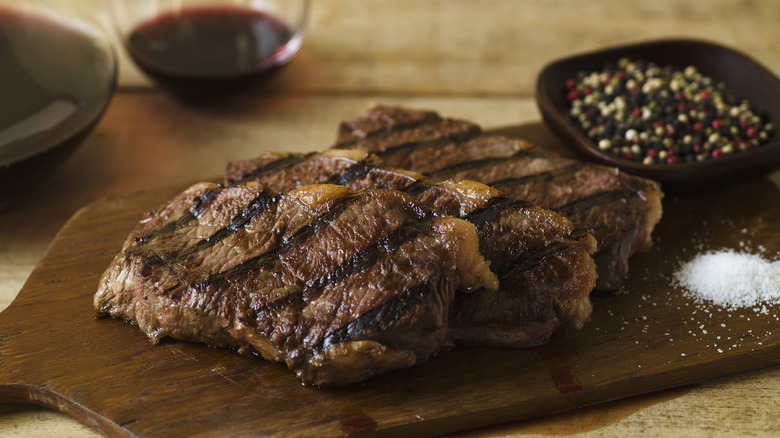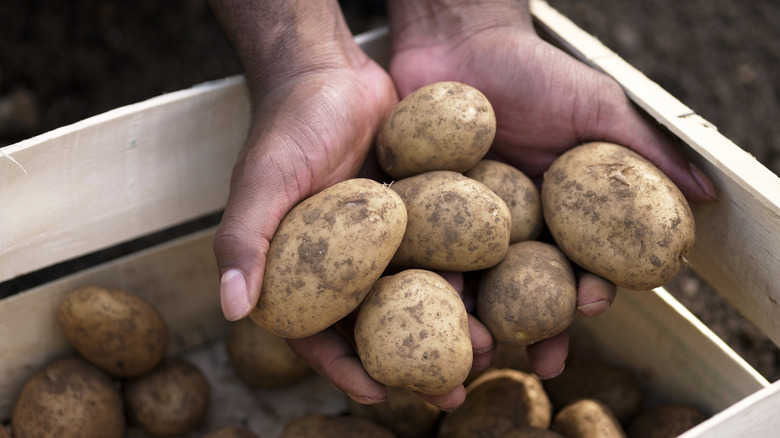How To Potentially Save The Flavor Of Overcooked Meat
Cooking meat is one of America's favorite culinary pastimes. It's eaten more per capita than any other nation on the planet. Whether you're grilling it, pan-searing it, or just cooking it in the oven, it's rare to find an American dinner that doesn't involve some sort of meat unless you're in a vegetarian or vegan home. But sometimes, despite your best efforts, your meat gets overcooked. Maybe it's fully burnt, or maybe it's just dried out, but one thing's for sure: you have to throw it out now and order some pizza (unless it's chicken thighs, which weirdly taste better overcooked).
Or do you? It turns out, there are actually several ways to potentially save overcooked meat. Sure, if it's a full-on briquette there's not going to be anything you can do, but if your steak is well done, it might still be salvageable. This isn't just "cut off the burnt bits," either (although that's a good start); you can also grind it up, use sauces to mask the taste, simmer it in liquid to rehydrate it, or use potatoes. Seriously, potatoes are an option.
Don't just try to eat the meat as is
Remember how this isn't as simple as cutting off the burnt bits? Start by cutting off the burnt bits. That's just your starting point, but it's a good starting point because you're removing as much of that bitter carbonized flavor as you can. Then the real work begins.
The simplest way to deal with overcooked meat once you've gotten rid of that burnt taste is to shift gears on how you're using the meat. An overcooked steak or chicken breast is going to be dry and tough — but if you grind it up in a food processor with olive oil and turn it into a component into a stuffing, suddenly it's viable again. You can't really overcook ground meat, and while a full grind on an already cooked piece of meat isn't exactly the same, it's close enough to make dinner work. Dumplings, hand pies, filled pasta; there are a bunch of options here.
Your next bet is to mask it using equally strong flavors. There are a lot of options in this case, as well: vinegar, red wine, white wine, garlic, chilis, anything that can turn into a sauce is a good bet here. You don't generally want to use dried spices, but depending on the dish, the rest of these can all be useful.
Potatoes can help soak up excess burnt flavor
You can also simmer the meat in some liquid to rehydrate it. This isn't a long process; just cook the meat on low in some broth for a few minutes to let the liquid get into it.
The potato trick, though, is the weirdest option — but it may also be one of the most effective. Potatoes have a surprising tendency to soak up burning flavors when cooked with another food. If you've been cooking potatoes along with the meat, those are going to be shot, both from the perspective of the potatoes themselves and whether they can help you. But new potatoes can do the trick: just put a couple of fresh peeled potatoes in with the meat, then let it cook on the lowest setting for around 30 to 45 minutes. You're probably not going to want to use this technique by itself, but in conjunction with some of the others, it should pull out a surprising amount of the burnt flavor.
Whatever method you use, just know that you shouldn't get down on yourself; burning a protein happens to the best of us. And hey, if it keeps happening, you can always start using mushrooms as your protein, because they're almost impossible to overcook.


